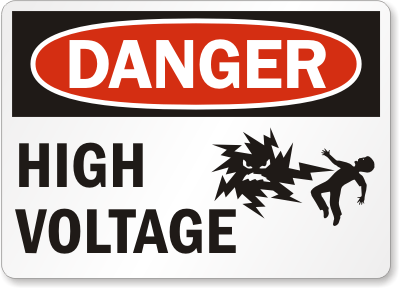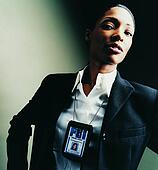 Kill Fee by Owen Laukkanen
Kill Fee by Owen LaukkanenPeople who say Kill Fee (Putnam, March 20, 2014) is implausible have a point. It's true that few already wealthy American businessmen will risk their necks moonlighting in violent crime, no matter how lucrative. But let's just assume only one greedy man among our wealthiest 1% seeks to fill the unmet demand for professional murder. That man could be much like Owen Laukkanen's Michael Parkerson, and he makes a dilly of a villain.
 Parkerson is a dutiful husband and father at home, and an amoral executive who deals with "dollars, in and out" at his daytime workplace. He kids around with his secretary and attends a board meeting, even while sneaking in minutes on killswitch.com, the website forum for gun enthusiasts in which he anonymously and carefully handles orders for murder. Most of the time, Parkerson, who hates messes, manages to keep his own hands relatively clean. He does the organizing and planning while the dead-eyed "assets" do the actual work. (The despicable ways in which Parkerson recruits, trains, and manages these assets make a heck of a social statement.) Killswitch is several years old, and Parkerson is making a killing (sorry!) in profits. Things start to go wrong when Kirk Stevens and Carla Windermere witness Parkerson's asset, Malcolm Lind, shoot billionaire Spenser Pyatt outside a hotel in Saint Paul, Minnesota.
Parkerson is a dutiful husband and father at home, and an amoral executive who deals with "dollars, in and out" at his daytime workplace. He kids around with his secretary and attends a board meeting, even while sneaking in minutes on killswitch.com, the website forum for gun enthusiasts in which he anonymously and carefully handles orders for murder. Most of the time, Parkerson, who hates messes, manages to keep his own hands relatively clean. He does the organizing and planning while the dead-eyed "assets" do the actual work. (The despicable ways in which Parkerson recruits, trains, and manages these assets make a heck of a social statement.) Killswitch is several years old, and Parkerson is making a killing (sorry!) in profits. Things start to go wrong when Kirk Stevens and Carla Windermere witness Parkerson's asset, Malcolm Lind, shoot billionaire Spenser Pyatt outside a hotel in Saint Paul, Minnesota. Stevens, of Minnesota's Bureau of Criminal Apprehension, and Windermere, a hotshot special agent for the FBI, have appeared in Laukkanen's terrific earlier books, The Professionals and Criminal Enterprise (see reviews here and here). They make an odd pair: Stevens is middle-aged, white, paunchy, and balding, while Windermere is young, black, and gorgeous. Because they work so well together at the exciting job of chasing criminals, they're attracted to each other. This is in spite of Stevens' happy home life as the father of two and husband of Nancy, a beautiful lawyer, and Windermere's fondness for Stevens' family. I am willing to buy this, but the extent to which they think about and discuss it in Kill Fee gets in the way of the plot and doesn't seem credible.
Stevens, of Minnesota's Bureau of Criminal Apprehension, and Windermere, a hotshot special agent for the FBI, have appeared in Laukkanen's terrific earlier books, The Professionals and Criminal Enterprise (see reviews here and here). They make an odd pair: Stevens is middle-aged, white, paunchy, and balding, while Windermere is young, black, and gorgeous. Because they work so well together at the exciting job of chasing criminals, they're attracted to each other. This is in spite of Stevens' happy home life as the father of two and husband of Nancy, a beautiful lawyer, and Windermere's fondness for Stevens' family. I am willing to buy this, but the extent to which they think about and discuss it in Kill Fee gets in the way of the plot and doesn't seem credible. This is only a minor flaw, because Laukkanen writes thrillers whose action I can only liken to the completely head-spinning time I drove home from college in a Triumph Spitfire with a dachshund and a cat loose in the car. Shifting points of view crank up the tension: in Kill Fee, we follow Parkerson, unwilling to dismantle his profitable business, frantically trying to fix one Killswitch mess after another; several assets, including Lind, who attempts to avoid capture, yet stay on schedule, while trying to decide what to do about a pretty young Delta employee seeking to befriend him; and Stevens, Windermere, and her FBI colleague, Mathers, hot on the trail of the assets and trying to sniff out the man behind them.
This is only a minor flaw, because Laukkanen writes thrillers whose action I can only liken to the completely head-spinning time I drove home from college in a Triumph Spitfire with a dachshund and a cat loose in the car. Shifting points of view crank up the tension: in Kill Fee, we follow Parkerson, unwilling to dismantle his profitable business, frantically trying to fix one Killswitch mess after another; several assets, including Lind, who attempts to avoid capture, yet stay on schedule, while trying to decide what to do about a pretty young Delta employee seeking to befriend him; and Stevens, Windermere, and her FBI colleague, Mathers, hot on the trail of the assets and trying to sniff out the man behind them. This three-ring circus is made even more nerve-racking by the plot twists Laukkanen tosses in, his willingness to harm his characters, and the competing emotions generated by his villains. For the most part, they are ordinary Joes and Janes, who take to crime because they decide they need a lot of money, and then they find themselves in over their heads. Their human frailty, which Laukkanen emphasizes by showing how exhausted and beleaguered they are, makes us root for them despite our simultaneously rooting for them to be stopped. That said, I had little sympathy for the dastardly Parkerson, although no one could ever call that guy lazy, and a lot of sympathy for the assets, ordinary Joes in over their heads for other excellent reasons.
This three-ring circus is made even more nerve-racking by the plot twists Laukkanen tosses in, his willingness to harm his characters, and the competing emotions generated by his villains. For the most part, they are ordinary Joes and Janes, who take to crime because they decide they need a lot of money, and then they find themselves in over their heads. Their human frailty, which Laukkanen emphasizes by showing how exhausted and beleaguered they are, makes us root for them despite our simultaneously rooting for them to be stopped. That said, I had little sympathy for the dastardly Parkerson, although no one could ever call that guy lazy, and a lot of sympathy for the assets, ordinary Joes in over their heads for other excellent reasons.I also liked the people chasing Parkerson and his killers: Windermere, an attractive, ballsy woman who calls the shots; Stevens, a problem solver whose love for his family and fear of flying can't extinguish his excitement about the job; and Mathers, a young FBI agent who shows he can manage something other than Minnesota nice.
Like The Professionals and Criminal Enterprise, Kill Fee is teeth-rattling suspense and top-notch entertainment. It would be a perfect companion for a vacation or a long train ride, because you'll want to devour it in one or two gulps. After I read it, it made my day to hear Laukkanen is working on the fourth in this series. I can hardly wait.










